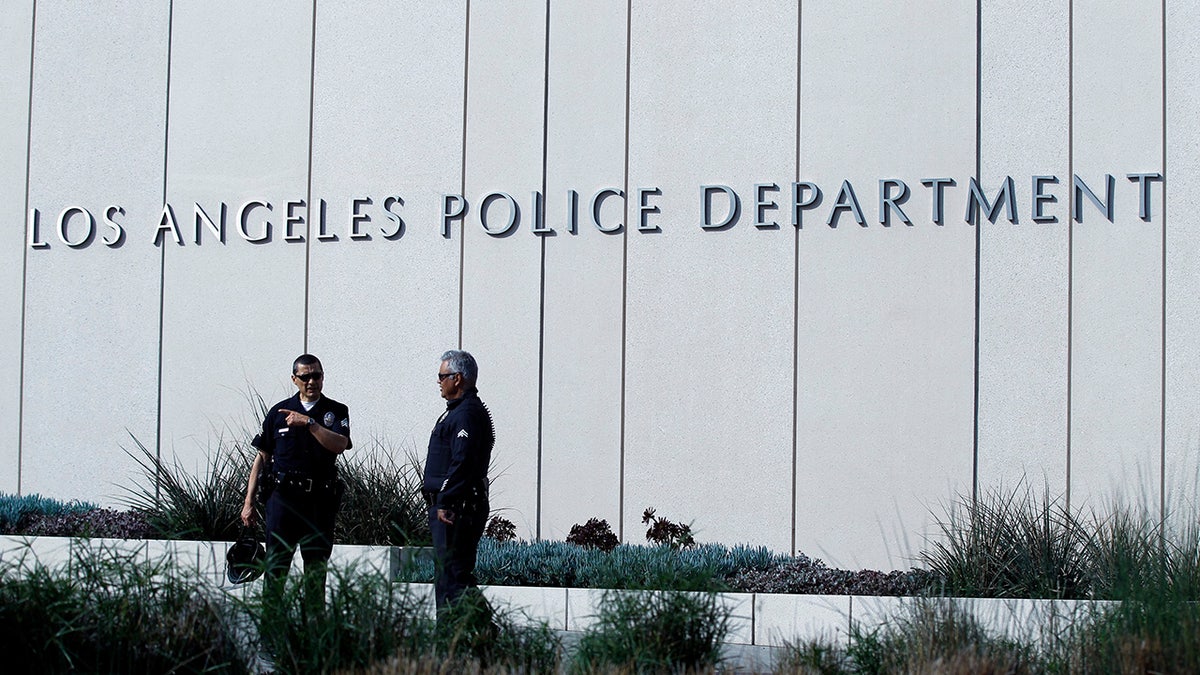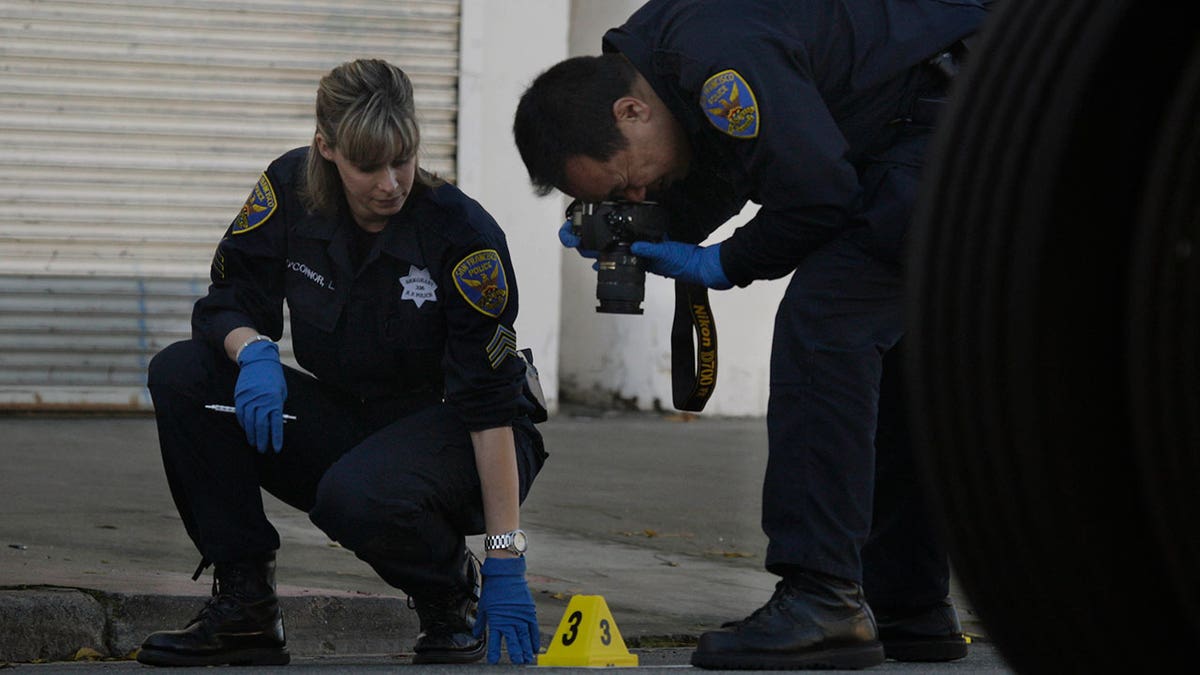Several California police unions have come out against a recent WalletHub study that concluded the state was the best place to be a police officer, with critics citing low morale among the rank and file because of law enforcement staffing issues and soft-on-crime polices.
The report released by the personal finance website based its findings largely on compensation, training and job hazards and protection. However, it didn’t survey officers or sheriff’s deputies, said Tom Saggau, who represents several California police unions.
“Some of the things that they weighed in our opinion are just bananas,” Saggau told Fox News Digital. “It’s certainly not what we’re hearing when we do a survey of the rank and file.”
LOS ANGELES COUNTY DEPUTY DIES FOLLOWING MEDICAL EMERGENCY AT STATION, SHERIFF’S DEPARTMENT SAYS

A WalletHub study says California is the best state for police officers. (Reuters/File)
The one question the unions ask their members is if they would recommend their friends or loved ones to become a law enforcement officer in California, Saggau said, noting that nearly 85% of respondents say “no.” He pointed to low staffing levels in police departments in places like Los Angeles, San Francisco and San Jose, mandatory overtime that can upend the personal lives of officers, and the state’s high cost of living, which forces officers to live farther from where they work.
As a result of expensive home prices, officers in San Francisco are forced to live further outside the city, which increases commute times and higher travel costs, said Tracy McCray, president of the San Francisco Police Officers Association.
A major factor is California’s criminal justice system, where some laws have allowed violent offenders to be released without bail and have enabled criminals to act in brazen ways, critics have said.
“Just last week, two San Jose police officers were shot by a repeat offender with three warrants for his arrest for violent sex crimes,” Steve Slack, president of the San Jose Police Officers’ Association, said in a statement. “California police officers know that no bail policies make their jobs much more dangerous, and many California politicians support a catch and release mentality that protects the criminal at the expense of victims, the public and police officer safety.”
NYPD OFFICER SHOT, KILLED DURING CAR STOP IN QUEENS BY SUSPECT WITH MULTIPLE PRIOR ARRESTS: POLICE

Crime scene investigators with the San Francisco police document the scene of a shooting. (Lea Suzuki/San Francisco Chronicle via Getty Images/File)
Rank-and-file officers are tired of the “revolving door” criminal justice system in California, Saggau said.
“It’s really questioning, like, ‘Why am I doing this job?’ You’ve gone into it for a reason and is that reason even valid anymore?” he said. “They’re so frustrated that on any given day they can arrest somebody … and they just get out of jail that day or the next day.”
Marcus Barbour, president of the Santa Clara County Deputy Sheriffs’ Association, said his department’s staffing levels of sworn law enforcement officers is down 34%.
“If you’re not assessing staffing issues as to whether a location is a good place to work, you are completely missing the target as to what actual sheriff deputies believe,” he said. “This chronic short staffing necessitates our deputies to work forced overtime to minimally staff our patrol and court divisions. Our deputies are tired, they are missing quality time at home with their families; it’s about personal time for them, not the median salary posted on some website’s chart.”
According to the study, Illinois ranked as the second-best state to be a law enforcement officer, followed by Connecticut and Washington, D.C. Alaska came in last.
WalletHub analyst Cassandra Happe told Fox News Digital the study was conducted “with great attention to detail, using a wide range of carefully chosen metrics to provide a comprehensive understanding of the factors that influence law enforcement careers.”
CLICK HERE TO GET THE FOX NEWS APP
“We respect the perspectives shared by union leaders on issues such as staffing levels, housing costs and work-life balance. However, it’s important to clarify that our analysis was primarily data-driven,” she said. “We relied on publicly available data sources and expert analysis to assess metrics such as law enforcement officers per capita, median income growth, training requirements and job hazards.”
Happe said the study has its limitations and that officer wellness, organizational culture and work-life balance are critical considerations for law enforcement professionals.






